Timber daybed by chmara.rosinke features built-in privacy screens
Austrian studio chmara.rosinke created this Japanese-influenced daybed with rotating textile screens as a place to retreat and think, for a design competition run by fashion house Hermès (+ slideshow).
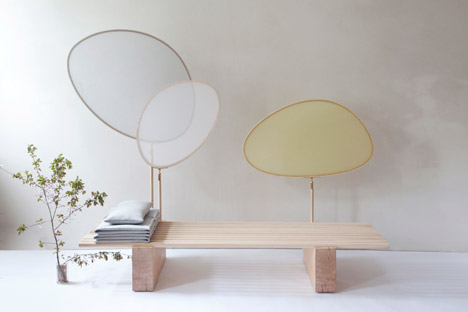
Organised by Hermès as part of the D'Days design festival in Paris, the Prix Émile Hermès Design Award challenged designers to create a product which addressed the theme Time To Yourself.
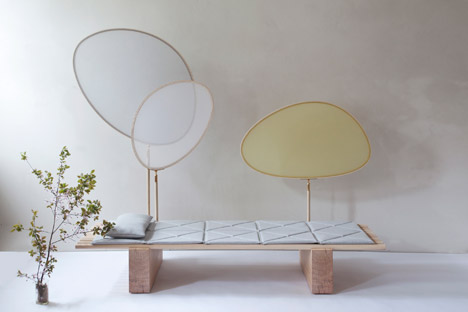
Ania Rosinke, co-founder of the Vienna-based studio chmara.rosinke, designed her prototype daybed titled A Space to Think as a place for users to reflect and escape.
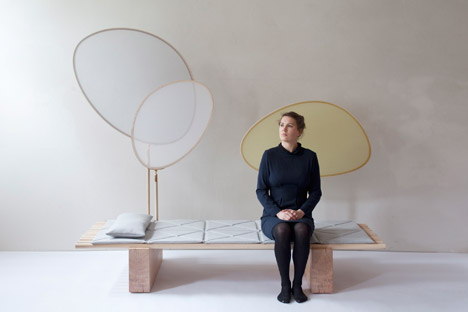
"The design started from the idea of covering oneself with textiles, creating an intimate space," designer Ania Rosinke told Dezeen.
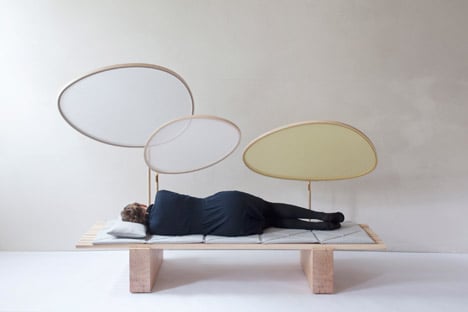
The lightweight daybed – one of the final twelve products in the competition – is made from rows of timber rods sat atop blocks of pine and is influenced by the aesthetics often found in Japanese architecture.
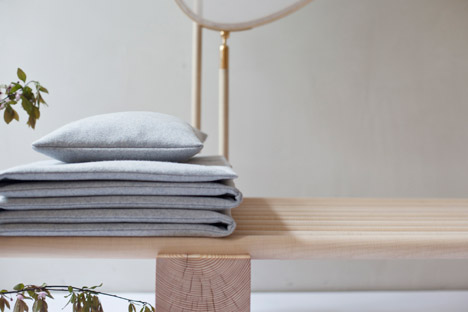
"The calmness, quality of craftsmanship, perfection of details, simplicity and lightness are aspects that also have their place in Japanese architectural culture and design," Rosinke said.
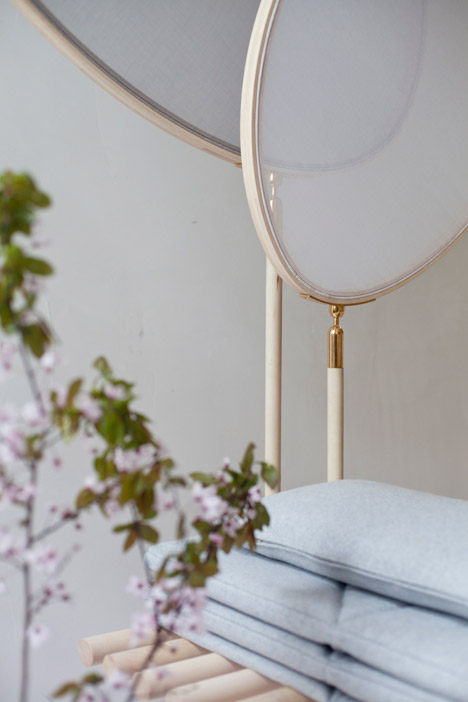
A cushioned roll mat lies across the bed and provides a softer surface for relaxing on. The mat can also be folded back in a concertina fashion, transforming the daybed into a bench.
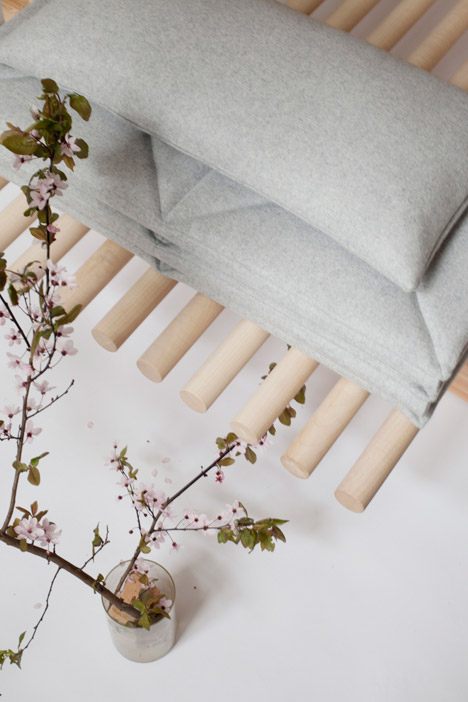
Three textile screens are attached to the structure atop wooden stands with gold plated hinges, creating a semi-transparent partition.
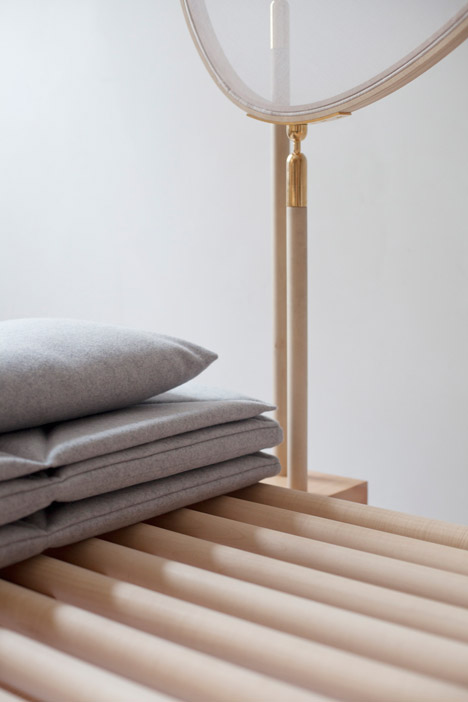
"The formal language was designed to be very simple and rigid," Rosinke said. "This strictness is broken by the abstract organic shapes, reminding some people of trees and giving the piece a kind of lightness."
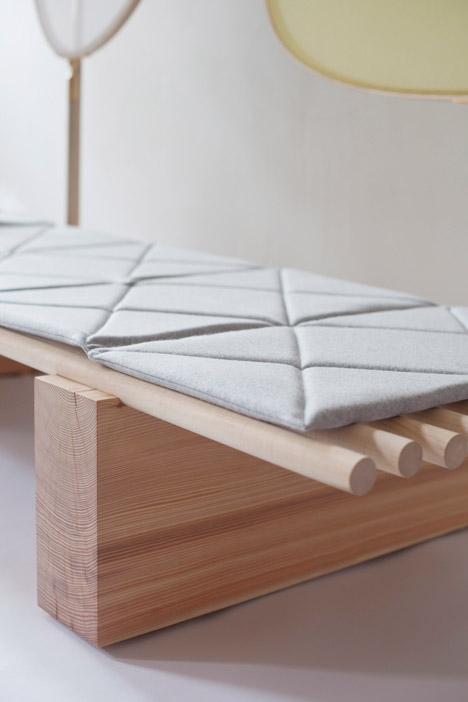
The silk and polyester ovals move in several directions and were inspired by the types of room dividers often found in nomadic homes.
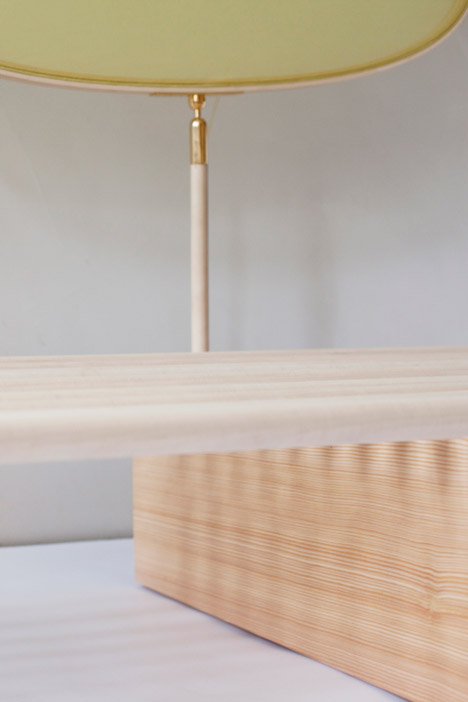
The 35-millimetre-thick panels are designed to provide a barrier and can be raised or lowered to let others know that you need space.
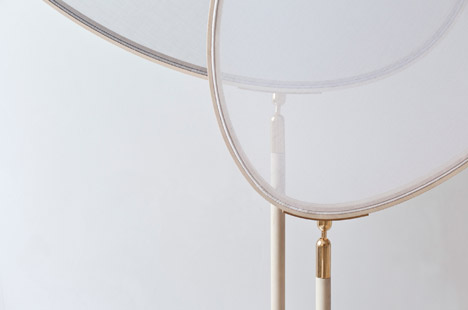
"The furniture shows other people if you are open, or if you want to be left alone and the screens, though translucent, provide us with a feeling of intimacy," Rosinke explained.
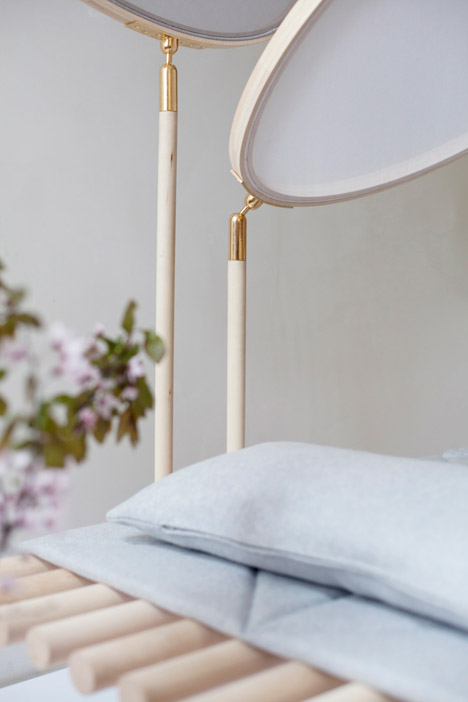
The Prix Émile Hermès Design Award was chaired by Italian designer and architect Michele de Lucchi and the first prize was shared by a pod-like retreat called La Capsule ventilee, an unfolding cardboard privacy screen and an alcove that can be attached to a wall.
The prize was funded by the Fondation d'entreprise Hermès and Roskine's design was on display alongside the other finalists for a week during the D'Days festival in May, in an exhibition designed by Swiss studio Big-Game.